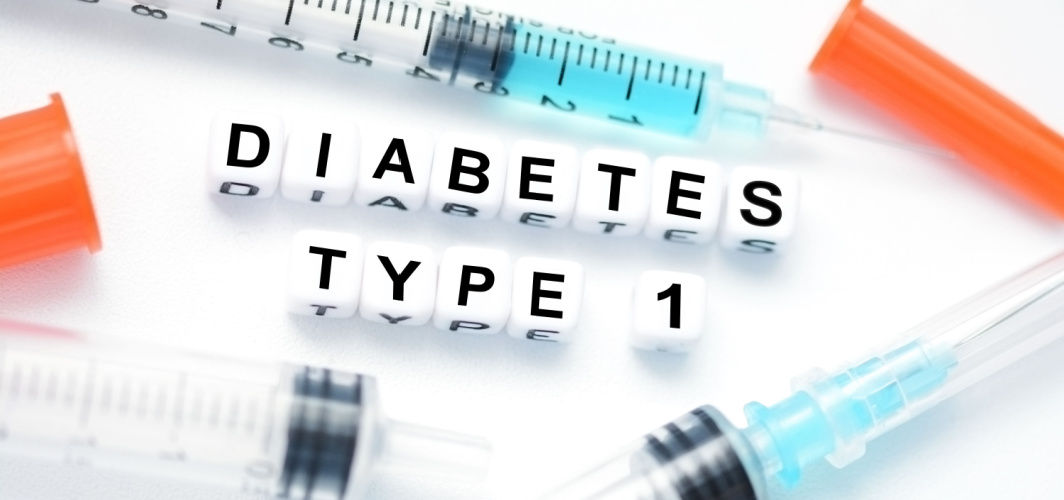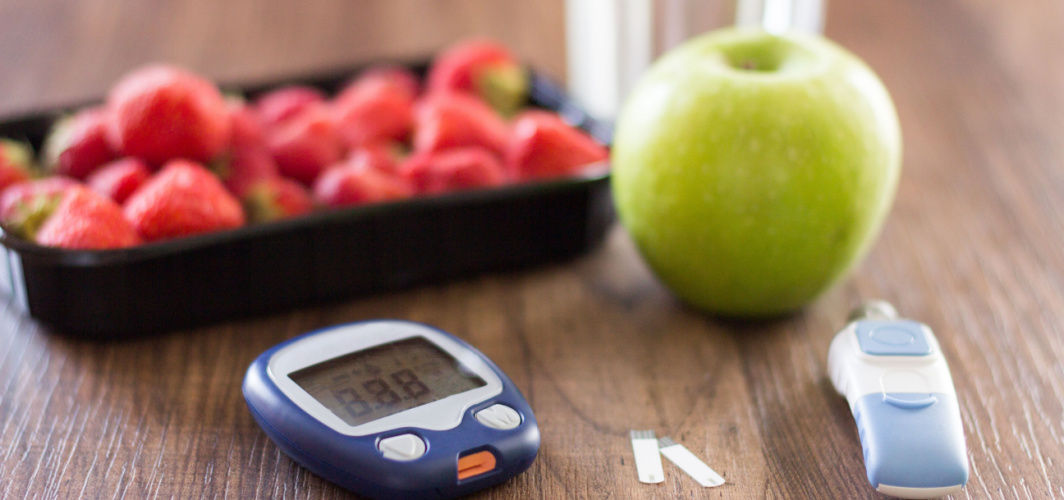Diabetes Management
Type 1 Diabetes: Symptoms, Causes, Diagnosis, and Treatment
7 min read
By Apollo 24|7, Published on - 30 June 2023
Share this article
0
0 like

Type 1 diabetes is a chronic autoimmune disease that affects the pancreas and its ability to produce insulin. Insulin is a vital hormone responsible for regulating blood sugar levels. Without enough insulin, glucose (sugar) accumulates in the bloodstream, leading to hyperglycemia (high blood sugar). Although type 1 diabetes can develop at any age, it commonly appears before the age of 40. Moreover, approximately 10% of all diabetes cases are classified as type 1. Let’s know more about it.
Symptoms of Type 1 Diabetes
The symptoms of Type 1 diabetes usually begin with mild manifestations that gradually intensify over time, spanning across days, weeks, or even months. This progression is due to the decreasing production of insulin by the pancreas.
Common symptoms associated with Type 1 diabetes include:
- Frequent urination
- Excessive thirst
- Excessive hunger
- Fatigue
- Unexplained weight loss
- Blurred vision
- Vaginal yeast infections
- Slow wound healing
Causes of Type 1 Diabetes
Typically, the body's immune system, which normally protects against harmful viruses and bacteria, mistakenly attacks and destroys the insulin-producing cells (islet cells) in the pancreas. This destruction can occur gradually over months or even years, leading to a complete deficiency of insulin. There are several potential causes and risk factors associated with type 1 diabetes, including:
1. Genetic Factors: If one or both parents have type 1 diabetes, the risk of developing the condition is significantly increased. Genetic susceptibility plays a role in the development of the disease.
2. Viral Infections and Environmental Factors: Experts believe that certain viruses and environmental factors may trigger an immune response that attacks the pancreatic cells in individuals with a genetic predisposition to type 1 diabetes.
Diagnosis of Type 1 Diabetes
Type 1 diabetes can be diagnosed through a series of tests to evaluate blood glucose levels and detect the presence of specific antibodies. If you experience symptoms of Type 1 diabetes, your doctor may order the following diagnostic tests:
1. Blood Glucose Test
This test measures the amount of sugar present in your blood. It can be done as a random test or a fasting test. A random test is conducted without fasting, while a fasting test requires you to refrain from eating or drinking anything for at least eight hours before the test. If the results show very high blood sugar levels, it typically indicates Type 1 diabetes.
2. Glycosylated Haemoglobin Test (HbA1c)
If your blood glucose test suggests diabetes, your doctor may perform an HbA1c test. This test measures the average blood sugar levels over three months.
3. Antibody Test
This blood test detects the presence of autoantibodies, which are proteins that mistakenly attack the body's tissues. The presence of these specific autoantibodies indicates type 1 diabetes. On the contrary, these autoantibodies are typically absent in individuals with Type 2 diabetes.
Treatment of Type 1 Diabetes
While type 1 diabetes cannot be cured, there are multiple ways of treating the condition and keeping it under control. Individuals with type 1 diabetes require daily administration of synthetic insulin, often multiple times throughout the day, to maintain their health and well-being. Managing type 1 diabetes involves a comprehensive and personalized approach due to the various factors influencing blood sugar levels. There are three key components involved in the management of type 1 diabetes:
1. Insulin
There are various types of synthetic insulin available, each with different onset and duration of action in the body. The dosage of insulin required depends on factors such as weight, age, physical activity level, types of foods consumed, and current blood sugar level. Insulin can be administered through injections, insulin pens, pumps, or inhalation methods.
2. Blood Glucose Monitoring
People suffering from type 1 diabetes need to regularly monitor their blood sugar levels to ensure it stays within the advised range. This practice is essential to prevent severe diabetes complications. Regular monitoring can be done using a glucometer or Continuous Glucose Monitoring (CGM) system.
3. Carbohydrate counting
Carbohydrate counting is an essential aspect of managing type 1 diabetes. It involves monitoring the amount of carbohydrates present in the food and beverages you consume to administer appropriate doses of insulin.
When your body breaks down carbohydrates, it converts them into glucose, which increases your blood sugar level. Therefore, individuals with type 1 diabetes need to calculate and administer insulin doses based on the grams of carbohydrates consumed in a meal. This can be done by reading nutrition labels and matching the carbohydrate intake with the appropriate insulin dosage.
Complications of Type 1 Diabetes
Poorly managed type 1 diabetes with persistently high blood sugar levels can lead to various complications such as:
- Foot problems like ulcers and infections (which can also result in gangrene)
- Eye problems like diabetes-related macular edema, retinopathy, cataracts, and glaucoma
- Heart diseases such as coronary artery disease
- Kidney diseases such as kidney failure
- High blood pressure
- Gum infections (gingivitis & periodontitis)
- Skin conditions like dry skin, fungal and bacterial infections
- Nerve damage (neuropathy)
- Stroke
Side Effects of Using Insulin for Type 1 Diabetes
Diabetes treatment, including insulin therapy, can sometimes result in adverse side effects. The primary side effect of insulin treatment is low blood sugar (hypoglycemia). Hypoglycaemia may occur if you take an excessive amount of insulin as compared to your food consumption and activity levels. The symptoms of low blood sugar may include:
- Sweating and chills
- Shaking or trembling
- Dizziness or lightheadedness
- Headaches
- Rapid heart rate
- Feeling hungry
- Nervousness or irritability
- Nausea
- Pale skin
- Weakness
Hypoglycaemia is a potentially dangerous condition that requires immediate treatment. It is recommended to follow the "15-15 rule" to address an episode of low blood sugar. This involves the following steps:
- Consume 15 grams of carbohydrates to boost your blood sugar
- Wait for 15 minutes, then check your blood sugar levels
- If your blood sugar is still below 70 mg/dL, consume another 15 grams of carbohydrates
- Repeat the process until your blood sugar reaches at least 70 mg/dL.
If you experience symptoms of hypoglycemia but are unable to test your blood sugar, adhere to the 15-15 rule until you start feeling better. Also, always carry sweet candies or lozenges to stay prepared for a hypoglycaemic episode.
Is Type 1 Diabetes Preventable?
Unfortunately, it is not possible to prevent the development of type 1 diabetes. However, since there is a genetic link to the disease, your doctor can perform autoantibody testing on your family members to assess their risk of developing type 1 diabetes.
The presence of autoantibodies, even in the absence of diabetes symptoms, indicates a higher likelihood of developing type 1 diabetes. If you have a child, sibling, or parent with type 1 diabetes, it may be advisable to undergo an autoantibody test. These tests can help identify type 1 diabetes in its earliest stages.
Takeaway
If you experience the symptoms of type 1 diabetes, it's a good idea to consult with a doctor right away. Timely detection and rigorous management are key to keeping the condition from worsening.
For more information, Consult Apollo’s Expert Diabetologists
FAQs
Q. How serious is type 1 diabetes?
If left untreated, type 1 diabetes can pose life-threatening risks. Early medical intervention is necessary. While diabetes cannot be cured, the primary goal of treatment is to maintain normal blood glucose levels, manage symptoms effectively and prevent complications.
Q. Is it mandatory for those with type 1 diabetes to take insulin?
Yes, insulin is a crucial part of type 1 diabetes treatment and management. Lack of insulin can result in extremely high blood sugar levels, thereby increasing the risk of diabetes complications such as diabetes ketoacidosis, neuropathy, and retinopathy.
Q. Can people with type 1 diabetes lead normal lives?
Yes, with proper medications and regular blood glucose monitoring, people with type 1 diabetes can lead healthy lives.
Q. How can I manage my type 1 diabetes naturally?
In addition to taking your insulin shots and prescribed medications, you can take steps like cutting back on refined carbs, quitting smoking, eating fiber-rich foods, and exercising regularly.
Q. What is the average lifespan of those with type 1 diabetes?
According to some reports, average life expectancy estimates for those living with type 1 diabetes range from 65 years to 72 years.
Medically reviewed by Dr Sonia Bhatt.
Diabetes Management
Leave Comment
Recommended for you

Diabetes Management
Maintaining a Healthy Weight in Diabetes: All You Need to Know
Maintaining a healthy weight is vital for individuals with diabetes, offering benefits, as well as reducing the risk of complications. Two key values, BMI and waist circumference, can help you assess your weight status. While BMI categorises weight broadly, waist circumference considers belly fat, a significant factor in diabetes risk. To sustain a healthy weight, adopt a balanced diet, engage in regular physical activity, and monitor blood sugar levels. These measures promote glycemic control and overall well-being for managing diabetes effectively.

Diabetes Management
Should Diabetics Fast in Navratri?
Fasting during Navratri can be a personal choice for individuals with diabetes, but it requires careful planning and consideration. Consulting with a healthcare provider is essential for creating a fasting plan tailored to your needs. Choosing low-carbohydrate, low-GI foods, staying hydrated, monitoring blood sugar levels, and being prepared for potential hypoglycemia are crucial aspects of successful fasting. If blood sugar levels become unmanageable or drop too low, breaking the fast is recommended. Listening to your body and prioritising health and safety are the keys to religious practices.

Diabetes Management
Is Increased Thirst A Sign Of Diabetes?
Excessive thirst can be a warning sign of diabetes. Learn about how you can manage and prevent this condition.
Subscribe
Sign up for our free Health Library Daily Newsletter
Get doctor-approved health tips, news, and more.
Visual Stories

8 Fruits That are Incredibly Healthy for Diabetes
Tap to continue exploring
Recommended for you

Diabetes Management
Maintaining a Healthy Weight in Diabetes: All You Need to Know
Maintaining a healthy weight is vital for individuals with diabetes, offering benefits, as well as reducing the risk of complications. Two key values, BMI and waist circumference, can help you assess your weight status. While BMI categorises weight broadly, waist circumference considers belly fat, a significant factor in diabetes risk. To sustain a healthy weight, adopt a balanced diet, engage in regular physical activity, and monitor blood sugar levels. These measures promote glycemic control and overall well-being for managing diabetes effectively.

Diabetes Management
Should Diabetics Fast in Navratri?
Fasting during Navratri can be a personal choice for individuals with diabetes, but it requires careful planning and consideration. Consulting with a healthcare provider is essential for creating a fasting plan tailored to your needs. Choosing low-carbohydrate, low-GI foods, staying hydrated, monitoring blood sugar levels, and being prepared for potential hypoglycemia are crucial aspects of successful fasting. If blood sugar levels become unmanageable or drop too low, breaking the fast is recommended. Listening to your body and prioritising health and safety are the keys to religious practices.

Diabetes Management
Is Increased Thirst A Sign Of Diabetes?
Excessive thirst can be a warning sign of diabetes. Learn about how you can manage and prevent this condition.